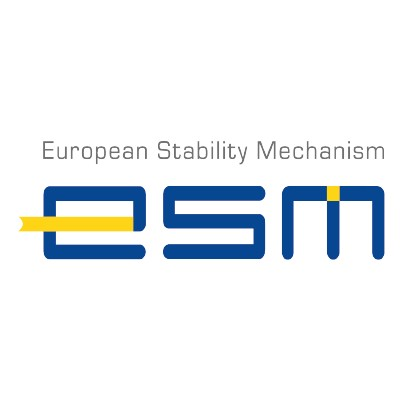Tariff Turmoil: The New Trade Landscape
April 8, 2025, 5:23 am

Location: Belgium, Brussels-Capital, Brussels
Employees: 1001-5000
Founded date: 1958
Total raised: $310.85K
The world of trade is shifting. Like a ship caught in a storm, nations are grappling with the waves of protectionism. The recent comments from UK Foreign Secretary David Lammy have stirred the pot. He lamented the return of protectionism in the United States. This sentiment echoes through the corridors of power in London. It’s a call to arms for open trade, a principle that has guided nations for decades.
Yet, Downing Street has distanced itself from Lammy’s remarks. Number 10 insists that the recent tariff measures are not a retreat into protectionism. Instead, they frame it as a necessary adaptation to a changing global landscape. The spokesperson emphasized that this is not a fleeting tactic but the dawn of a new era. The world is evolving, and so must trade policies.
The backdrop is a tumultuous financial market. The FTSE 100 recently plummeted, reflecting fears of a prolonged trade war. Panic swept through global markets as the ramifications of the U.S. tariffs became clear. The Chancellor, Rachel Reeves, voiced concerns about the impact on UK exports. She stressed the importance of safeguarding British jobs and interests. The stakes are high, and the pressure is mounting.
Meanwhile, the U.S. markets are in freefall. The S&P 500 and Dow Jones have taken significant hits. Investors are skittish, retreating from stocks like rabbits from a hawk. Over $5 trillion vanished from the S&P 500 in just two days. This is the worst performance since the pandemic began. The market is reacting to President Trump’s aggressive trade stance. His rhetoric on social media has only fueled the fire. He claims tariffs are the cure for financial deficits. This is a bold assertion, but it comes with risks.
China has retaliated with a staggering 34 percent tariff on U.S. goods. This move is a shot across the bow. It signals that the trade war is escalating. Trump’s response? He dismissed China’s actions as panic. The back-and-forth is reminiscent of a chess game, where each move has far-reaching consequences.
The implications for the UK are profound. The Chancellor is grappling with the reality that these tariffs could erode fiscal space. The British economy is intertwined with the U.S. market. A downturn in America can send shockwaves across the Atlantic. The FTSE 100’s decline is a stark reminder of this interconnectedness. It’s a delicate dance, and one misstep could lead to a fall.
As the dust settles, the question remains: what does this mean for the future of trade? The global economic landscape is shifting like sand beneath our feet. Nations must navigate these changes carefully. The old rules may no longer apply. Countries that cling to outdated trade agreements may find themselves left behind.
In this new era, adaptability is key. The UK is at a crossroads. It must balance its commitment to open trade with the realities of a protectionist wave. The government’s response will shape the nation’s economic future. Will it embrace a new trade philosophy, or will it cling to the past?
The political landscape is also changing. Leaders are reassessing their strategies. The Vice President of the U.S. is set to meet with Italy’s Prime Minister. This could open doors for more favorable trading terms. Meanwhile, the EU is grappling with its own challenges. The 20 percent levy on Italian goods is a stark reminder of the complexities of trade relationships.
As the world watches, the stakes continue to rise. The global economy is like a tightly wound spring. One wrong move could unleash chaos. The trade war is not just a battle of tariffs; it’s a test of resolve. Nations must weigh their options carefully. The future of trade hangs in the balance.
In conclusion, the current trade climate is fraught with uncertainty. The return of protectionism poses challenges for nations worldwide. The UK must navigate these turbulent waters with caution. As tariffs rise and markets tumble, the call for open trade becomes more urgent. The world is watching, and the decisions made today will echo for years to come. The new trade landscape is here, and it demands attention. The question is: will nations rise to the occasion or be swept away by the tide?
Yet, Downing Street has distanced itself from Lammy’s remarks. Number 10 insists that the recent tariff measures are not a retreat into protectionism. Instead, they frame it as a necessary adaptation to a changing global landscape. The spokesperson emphasized that this is not a fleeting tactic but the dawn of a new era. The world is evolving, and so must trade policies.
The backdrop is a tumultuous financial market. The FTSE 100 recently plummeted, reflecting fears of a prolonged trade war. Panic swept through global markets as the ramifications of the U.S. tariffs became clear. The Chancellor, Rachel Reeves, voiced concerns about the impact on UK exports. She stressed the importance of safeguarding British jobs and interests. The stakes are high, and the pressure is mounting.
Meanwhile, the U.S. markets are in freefall. The S&P 500 and Dow Jones have taken significant hits. Investors are skittish, retreating from stocks like rabbits from a hawk. Over $5 trillion vanished from the S&P 500 in just two days. This is the worst performance since the pandemic began. The market is reacting to President Trump’s aggressive trade stance. His rhetoric on social media has only fueled the fire. He claims tariffs are the cure for financial deficits. This is a bold assertion, but it comes with risks.
China has retaliated with a staggering 34 percent tariff on U.S. goods. This move is a shot across the bow. It signals that the trade war is escalating. Trump’s response? He dismissed China’s actions as panic. The back-and-forth is reminiscent of a chess game, where each move has far-reaching consequences.
The implications for the UK are profound. The Chancellor is grappling with the reality that these tariffs could erode fiscal space. The British economy is intertwined with the U.S. market. A downturn in America can send shockwaves across the Atlantic. The FTSE 100’s decline is a stark reminder of this interconnectedness. It’s a delicate dance, and one misstep could lead to a fall.
As the dust settles, the question remains: what does this mean for the future of trade? The global economic landscape is shifting like sand beneath our feet. Nations must navigate these changes carefully. The old rules may no longer apply. Countries that cling to outdated trade agreements may find themselves left behind.
In this new era, adaptability is key. The UK is at a crossroads. It must balance its commitment to open trade with the realities of a protectionist wave. The government’s response will shape the nation’s economic future. Will it embrace a new trade philosophy, or will it cling to the past?
The political landscape is also changing. Leaders are reassessing their strategies. The Vice President of the U.S. is set to meet with Italy’s Prime Minister. This could open doors for more favorable trading terms. Meanwhile, the EU is grappling with its own challenges. The 20 percent levy on Italian goods is a stark reminder of the complexities of trade relationships.
As the world watches, the stakes continue to rise. The global economy is like a tightly wound spring. One wrong move could unleash chaos. The trade war is not just a battle of tariffs; it’s a test of resolve. Nations must weigh their options carefully. The future of trade hangs in the balance.
In conclusion, the current trade climate is fraught with uncertainty. The return of protectionism poses challenges for nations worldwide. The UK must navigate these turbulent waters with caution. As tariffs rise and markets tumble, the call for open trade becomes more urgent. The world is watching, and the decisions made today will echo for years to come. The new trade landscape is here, and it demands attention. The question is: will nations rise to the occasion or be swept away by the tide?
